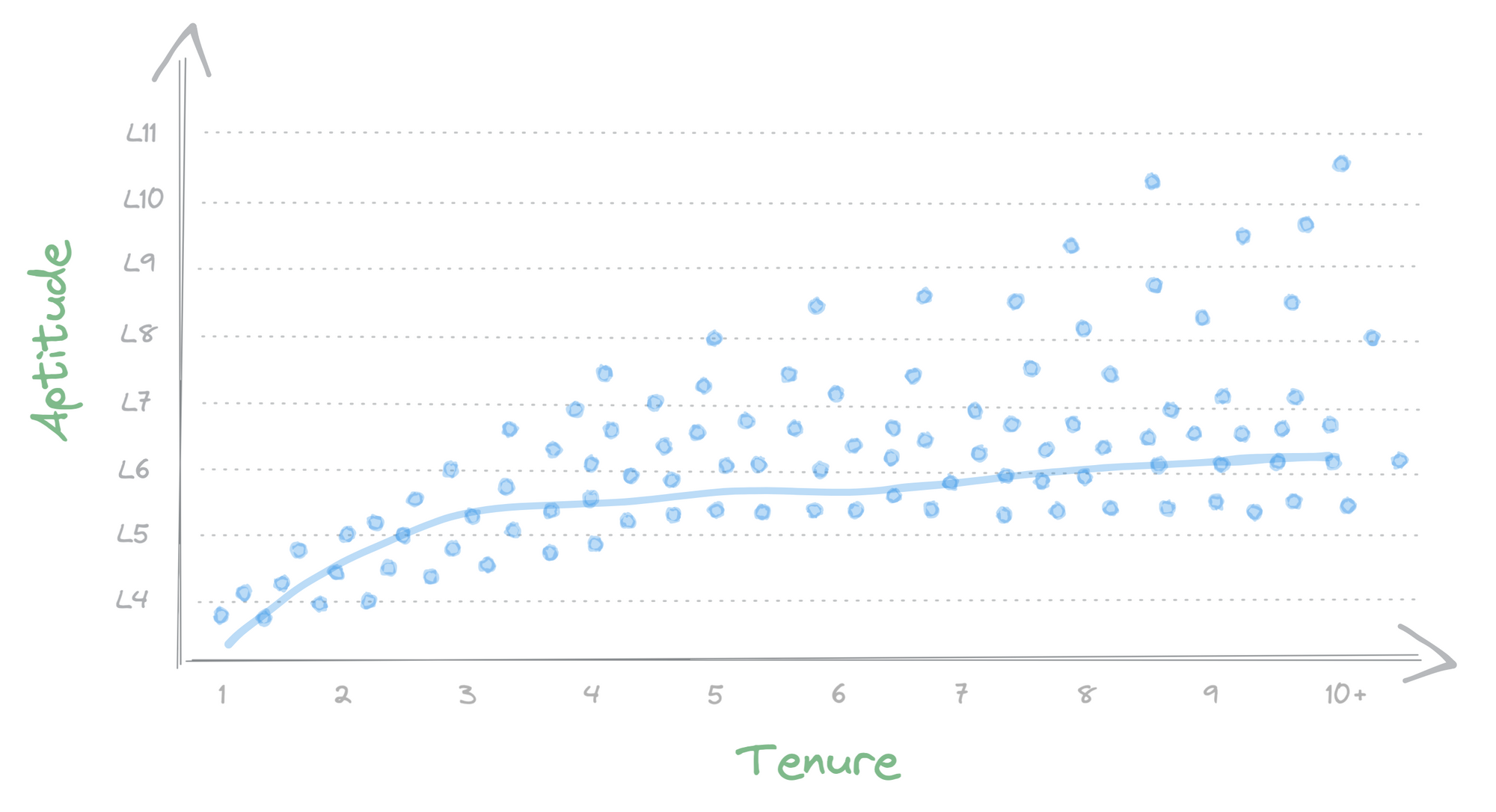Professional Aptitude vs. Tenure
Aptitude is the ability to perform a type of work. Tenure is the length of time in job. Their correlation degrades rapidly.

Tenure is the length of time with an employer or the industry. Aptitude is competence and the ability to perform a certain kind of work at a certain level. Aptitude is acquired through experience (XP), which requires tenure, but the correlation degrades rapidly as tenure grows.
Early on in the career, acquiring aptitude is easy because the skill tree is simple and has well-trodden paths; tenure and aptitude have a reasonably high correlation, and there is an expectation of progress across aptitude levels within specific time frames. As you progress in your career, tenure and aptitude start to diverge and begin to fluctuate wildly:
- You can have five years of tenure repeating the same year of XP: the skill tree is not changing much.
- You can steadily accumulate XP points, year after year, and gradually unlock new branches of the skill tree.
- You can have a year of tenure that accumulates five years of XP in one: a speedrun through the skill tree.
There are no constants. Most of us will experience alternating periods of steady growth, professional plateaus, and speedruns: some will continuously seek out pressure-cooker assignments, some will be thrust into them, and others will settle into a comfortable groove where they will hone their established craft and skill tree.
Different people have different optimal “resting aptitude level”. While there is an expectation of progress at the beginning of the journey—the ascent to the “basecamp aptitude skill tree”—most of us will eventually settle at a plateau. This is not a bug, or a deficiency of the individual, it’s normal and expected.
Find your "resting" zone before you lose it
Most organizations have a “career resting level” for each job: a level everyone is expected to reach eventually that, once reached, carries no further level growth expectations except for sustained execution and honing of their craft. Unfortunately, it's rare to find well-developed tools and language that gives enough credit, praise, and recognition to this happy steady state. Resting levels are not "easy" levels, they are the personal goldilocks zone: challenging but not impossible, rewarding but not at the cost of all else.
A clear-eyed perspective for the "right" resting level is one of the most challenging personal questions. The answer is not static and may shift based on variety of circumstances—health, family, organization that you're operating in, and access to opportunities—and all too often leads most of us into the trap of Peter's principle: we only recognize the optimal zone once we lost it, feeling trapped and unable to step back. It’s not atypical to find many high-flying icons—regardless of whether they are IC's or managers, founders or employees—wistfully lamenting about a happier and more satisfying professional stage in their career.
None of the above is an argument for not pushing yourself, or others, beyond an expected career resting level. On the contrary, lean into it, but make sure you do it with a clear understanding that transitions beyond a certain level come with increasingly large and transformational shape-shifting of both the scope and type of work involved. Tenure is not aptitude. Build the right skills but know what kind of skills and work will make you happy.
Subscribe to Ilya Grigorik's essays
Receive latest updates in your email inbox

